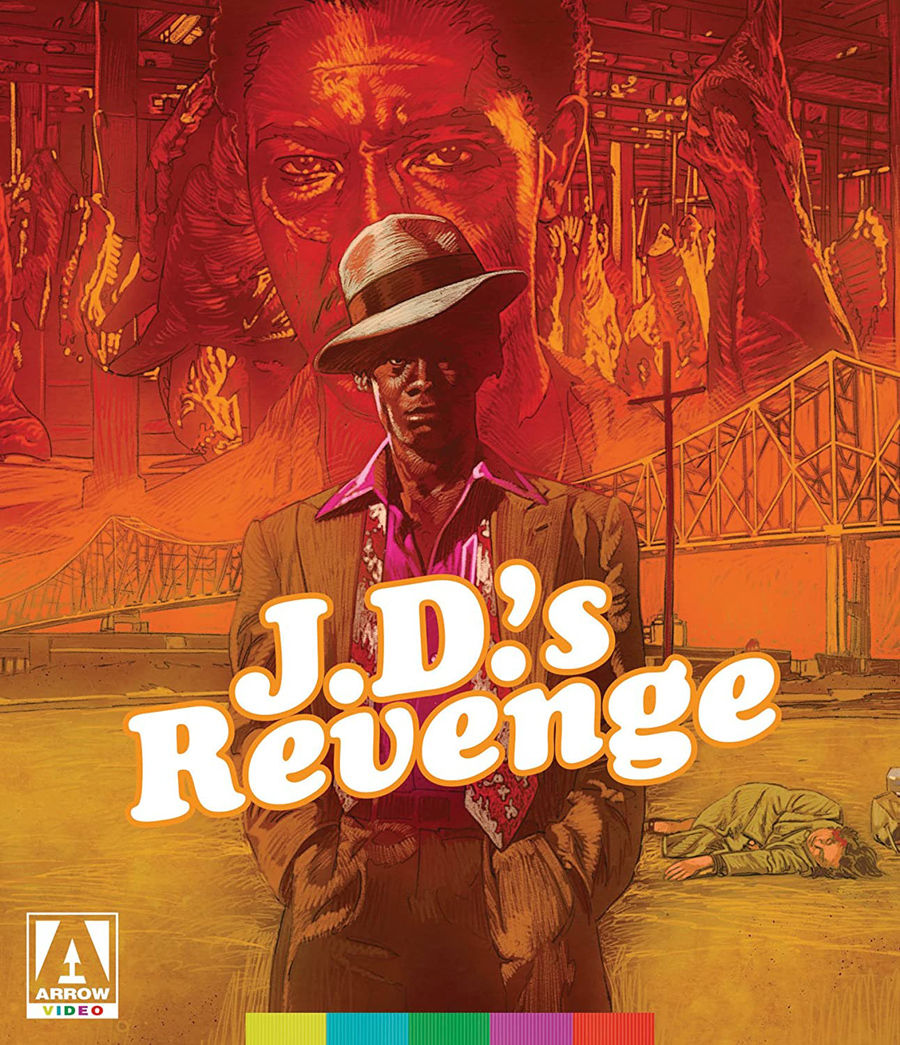J.D.’s Revenge Blu-ray Review (originally published 2017)
- Gabe Powers

- Apr 27, 2021
- 3 min read

Law student Ike (Glynn Turman) is enjoying a night on the town with his friends when his life changes dramatically. Taking part in a nightclub hypnosis act, he becomes possessed with the spirit of a violent gangster murdered in the 1940s. Believing himself to be the reincarnation of murderous J.D., Ike launches a revenge campaign against those who had done him wrong all those years ago… (From Arrow’s official synopsis)
Following the popularity of William Crain’s Blacula (1972) and its superior sequel, Bob Kelljan’s Scream Blacula Scream (1973), theaters were briefly inundated with low-budget films that combined blaxploitation with classic horror motifs. Like any quickly spreading B-movie fad, blaxploitation horror ran the gamut from trash (Frank R. Saletri’s Blackenstein, 1973) to supremely satisfying entertainment (Paul Maslansky’s Sugar Hill, 1974) and thought-provoking subversions of genre norms (Bill Gunn’s Ganja & Hess, 1973). Somewhere in the middle was Detroit 9000 (1973) and Friday Foster (1975, arguably the man’s masterpiece) director Arthur Marks’ J.D.’s Revenge (1976), which owed less to Universal Studios’ Gothic classics than it did to the irony-laced morality horror of EC Comics. Even then, screenwriter Jaison Starkes (who was kind of working from the Dr. Jekyll and Mr. Hyde playbook) clearly had more on his mind than simply mashing-up possession story terrors and blaxploitation clichés for the drive-in crowds (not to imply that the Blacula or Sugar Hill didn’t engage in social commentary).
Here, responsive viewers can find underlying messages about the hypocrisy of organized religion (especially as they existed in predominantly black neighborhoods), but, more than anything, the script focuses on the disintegration of a loving and healthy relationship. Ike’s descent into madness, violence, and adultery all fits the model of real-world domestic abuse. Revenge-from-the-grave plotline aside, the toxically masculine, ghostly influences are often more dangerous to the people Ike loves than J.D.’s enemies. This means that, by the film’s second rape scene, it’s almost impossible to maintain any sympathy for the main protagonist (perhaps that’s the point?). In addition to Marks’ solid direction and stylish use of montage editing, the performances are unusually mature for type. These help to balance the adolescent qualities that were necessary to please the teenage grindhouse audiences that bought the most tickets. J.D.’s Revenge could’ve been just another trashy satire, but, in spite of everything, Marks and company turned it into something genuinely tragic.
Video
J.D.’s Revenge was released on DVD by MGM as part of their Soul Cinema line. That remained the only digital home video version available for some time; though, like many MGM catalogue releases, it did appear in HD on cable television. This Blu-ray debut has been restored in 2K from the original interpositive by EFlim exclusively for Arrow, who cleaned up and regraded the footage. This is a particularly strong transfer, all things considered. There are major limitations in the source material, which is dark, grainy, and contrasty – all common issues for low-budget releases from the era – but the details are tight, the shapes are distinct, and Arrow/EFilm have managed to produce sharp textures. Inconsistencies can often be attributed to differences between location and studio shots, and the artifacts caused by composite special effects.
Audio
The original mono soundtrack was supplied directly by MGM Films and is presented in uncompressed LPCM audio. Like many similar films, the sound quality is limited by the dry, single mic recording set up, which absorbs too much ambience alongside the important dialogue. The single channel mix can magnify the issue, but is usually quite clean otherwise, even offering enough range for Robert Prince’s score that it sometimes sounds like a stereo track.
Extras
Killing Floor (46:03, HD) – This new retrospective documentary includes in-depth and substantial interviews with screenwriter Jaison Starkes, director Arthur Marks, editor George Folsey Jr. and lead actor Glynn Turman.
Here Lies J.D. Walker (17:42, HD) – An audio interview with actor David McKnight, who plays J.D. in the flashbacks, set to stills and scenes from the film.
Image gallery
Trailer and radio spots
Arthur Marks trailer reel









Comments